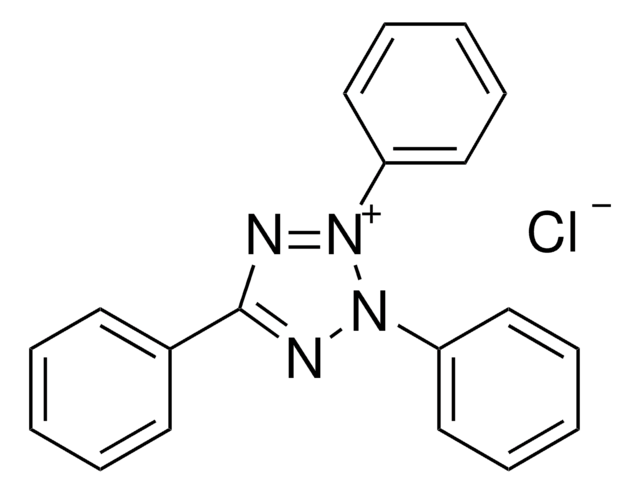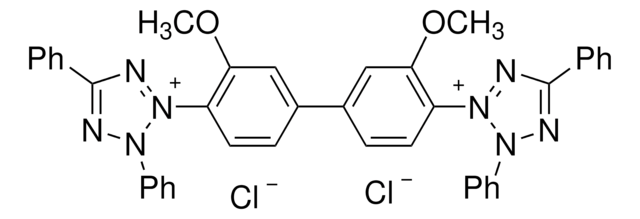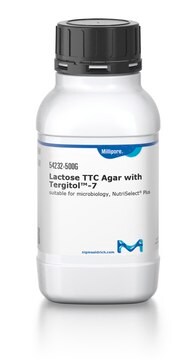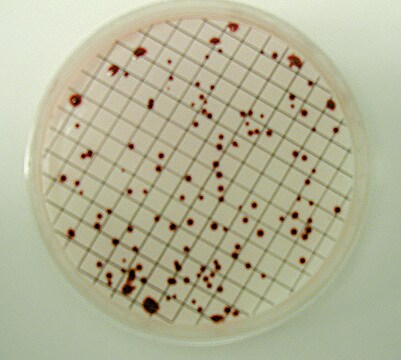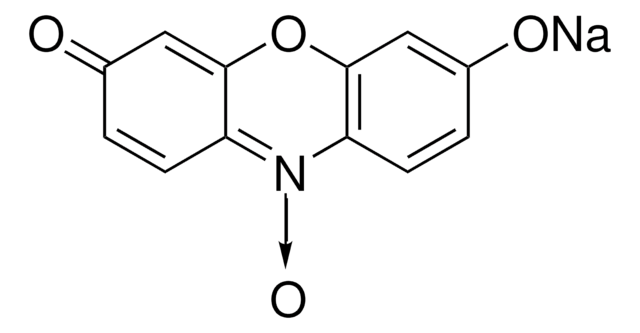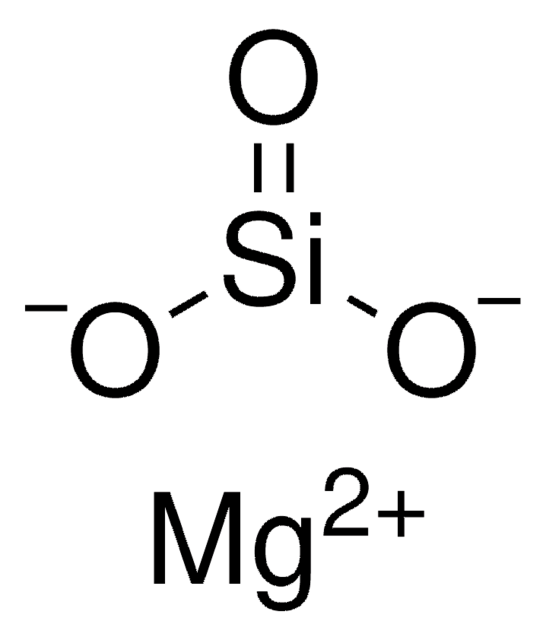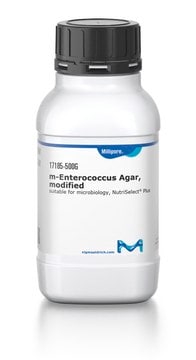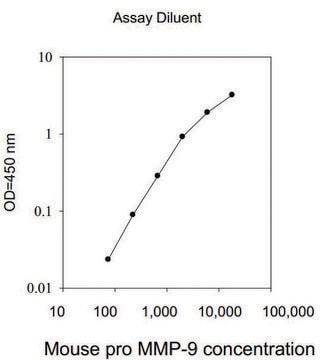17779
2,3,5-トリフェニルテトラゾリウムクロリド 溶液
suitable for microbiology, Filter sterilized solution that is recommended for the detection of microbial growth based on reduction of TTC
別名:
TTC溶液、TTCサプリメント, TTC, TTCサプリメント
About This Item
おすすめの製品
品質水準
無菌性
sterile (Filtered and Aseptic Handled)
フォーム
liquid
シェルフライフ
limited shelf life, expiry date on the label
分子量
334.8 g/mol
アプリケーション
agriculture
environmental
food and beverages
microbiology
保管温度
2-8°C
適合性
bacteria
SMILES記法
[Cl-].c1ccc(cc1)-c2nn(-c3ccccc3)[n+](n2)-c4ccccc4
InChI
1S/C19H15N4.ClH/c1-4-10-16(11-5-1)19-20-22(17-12-6-2-7-13-17)23(21-19)18-14-8-3-9-15-18;/h1-15H;1H/q+1;/p-1
InChI Key
PKDBCJSWQUOKDO-UHFFFAOYSA-M
関連するカテゴリー
詳細
アプリケーション
構成
2,3,5-トリフェニルテトラゾリウムクロリド:0.1 g、蒸留水:10 mL
保管分類コード
10 - Combustible liquids
WGK
WGK 2
引火点(°F)
Not applicable
引火点(℃)
Not applicable
個人用保護具 (PPE)
Eyeshields, Gloves
適用法令
試験研究用途を考慮した関連法令を主に挙げております。化学物質以外については、一部の情報のみ提供しています。 製品を安全かつ合法的に使用することは、使用者の義務です。最新情報により修正される場合があります。WEBの反映には時間を要することがあるため、適宜SDSをご参照ください。
Jan Code
17779-1VL-BULK:
17779-BULK:
17779-10X10-BULK-F:
17779-5VL-BULK-F:
17779-BULK-F:
17779-5VL-F:
17779-VAR-F:
17779-10X10ML-F:
17779-10ML-F:
この製品を見ている人はこちらもチェック
資料
Vibrio Detection
ライフサイエンス、有機合成、材料科学、クロマトグラフィー、分析など、あらゆる分野の研究に経験のあるメンバーがおります。.
製品に関するお問い合わせはこちら(テクニカルサービス)